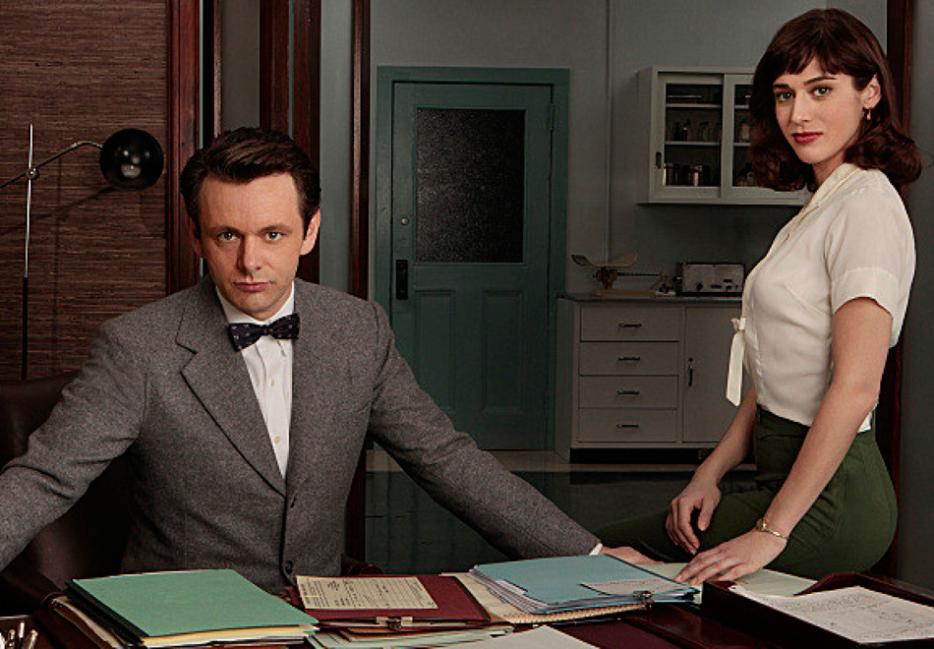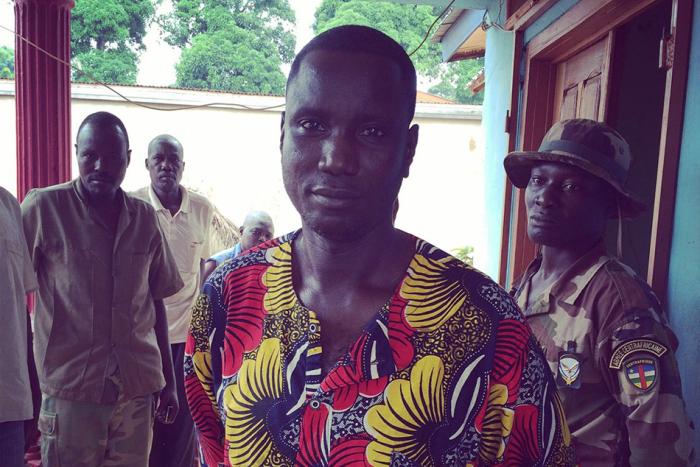Despite explicitly name-dropping it, Masters of Sex might have actually had less sex in its second season (which wrapped up on Sunday) than some of its cable contemporaries. With the parameters and methods of Bill Masters (Michael Sheen) and Virginia Johnson's (Lizzy Caplan) study on the physiology of sex now pretty firmly mapped, the show traded some of its observations and insertions for more of the messiness that goes on between humans when they're not between the sheets, not least of all the knotty (and still, sometimes, naughty) relationship between its main characters. Still, sex is never far from the show's mind, and might remain its favourite synecdoche for character insight—no small thing on a show that turns almost entirely on the way its people bump up and rub against one another, sexually or not.
Sex as character study has had a necessarily short history on television screens, maybe 20 years on the outside edge. Even now, anything on the non-cable airwaves is still pretty much just a proxy, at best only alluded to, although the relative graphicness of the sex is about the only thing that really separates the approach. Sex is always pretty much just an adjunct to what we already know about a character, their personality writ on the walls of their bedroom: Elaine's blasé attitude about others is summed up in her yada yada yadas about sex, Don Draper is as boozily dominant with his weekday trysts as he is in the office, and, hell, the Sex in the City women's sexual appetites ran precisely parallel to their lifestyle choices. Occasionally, the kind of sex someone has will be a sort of ironic counterpoint to their actual persona—say, that time Draper wanted to get smacked around a little—but it's rare that we get deeper than the binary: it's either perfect analogue or negative image, sexual personality inescapable from actual.
While that in some ways smacks of narrative neatness, it's not that far off how we tend to think about, or at least talk about, these things in real life. Not that many us dive too deep into the sexual psyches of anyone we aren't currently sleeping/semi-recently slept with, but even in trope-land, it's easy to assume sex is either fairly closely linked to public persona (the pouty, come-hither coquette/firm, confident square-jaw will bring us to our knees) or its nearly comic opposite (the tight-bunned librarian who lets down her hair, the captain of industry who wants to lick boot soles). Sex, though, is often a far more idiosyncratic, particular affair—just try to guess a person's fetish before you are mostly naked together—a fact that probably contributes to the general détente on public discussion.
We are, of course, considerably more open about it now than they were in the era Masters of Sex depicts. One of the show's more durable, if not always potent, metaphors is openness to sex as openness in general, though again, it's almost always a binary: either you're like Ginny Johnson, whose liberated attitude tends to infect all aspects of her life, or you're Bill Masters, whose personal openness is only just finally starting to catch up to his willingness to be publicly frank about sex. That tension actually gave the show some of its best moments early in the season—the episode "Fight" is proof that the show can pull apart and knot up psychological threads with the best of them—but it's also still a relatively simple little character puzzle, one piece standing for the whole.
It gets a lot better when it uses sex to illustrate the way two people relate to each other, something it does exceptionally well if only because it's the rare show that almost always gives us equals in audience attention/affection interacting with each other, as opposed to a more one-sided character experience. As with everything on the show, it's always at its best when it's Masters and Johnson, a pairing that never misses a chance to add another shade of grey. Early in the season, Masters all but blackmails Johnson into continuing something he wouldn't even admit was an affair, his control playing out in spurts of aggressive dominance in the bedroom. Though they shade ever closer to something like honesty, this is their default mode, constantly undercut by Johnson's willingness to use his momentum against him; she's a black belt in sexual judo, exceptionally skilled at using a hint of flesh or a certain air to lay bare the hypocrisy, if not actual emptiness, of his power games.
Their back and forth in a rented hotel room is a fairly direct analogue for their general dynamic, but what's interesting is how it throws into relief their actions everywhere else (like, you know, how most of our interactions tend to). In the glimpses we get of them in other bedrooms, they are entirely different—Masters timid and literally impotent, Johnson usually the leader, if not actually the aggressor—and more complicated still with all their clothes on.
Sex is just another kind of interaction, in other words—not a perfect microcosm of who they are, but just one of the many little microcosms that make up the entirety of a human. That's not a revolution on the level of the actual Masters and Johnson study, but it's at least some indication that televised sex has found something else to explore in the bedroom.






